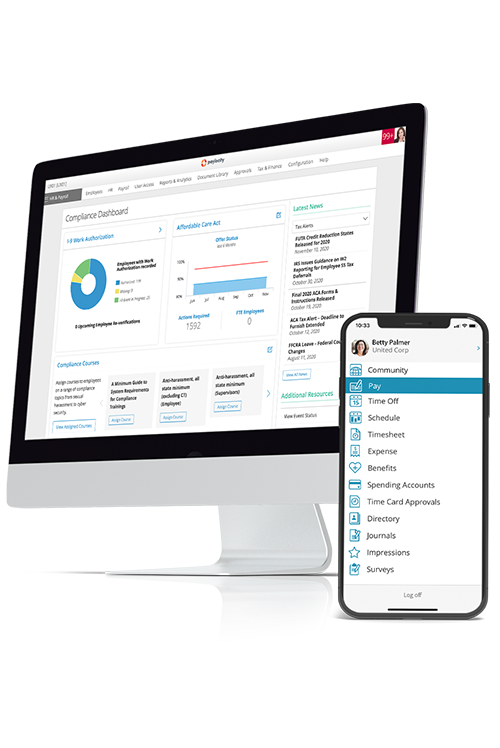
Why Smart Manufacturers See HR as a Strategic Partner
HR Challenges in the Manufacturing Industry
During my time leading the PCTY Advocate Program, I’ve spoken with hundreds of customers about their experiences as HR and payroll leaders. And when I talk to anyone who works in manufacturing, the same themes come up time and again.
First, I get the impression that most manufacturers have historically seen HR as a cost center. The core business of the company—sales, supply chain, production, and distribution—dominates C-level discussions, and HR doesn’t always get a seat at the table when strategic decisions are being made.
That’s a problem, because today’s manufacturers are facing real people management issues that have a direct impact on production. If you’re short on staff, you may not be able to fill your shifts—which means you may not be able to run production lines at full capacity or operate them safely.
Manufacturers will be fighting a losing battle if HR isn’t empowered to build a strong recruitment pipeline, streamline the hiring process, and build a culture that keeps employees happy. I’ll run through a few of the challenges in more detail and share some insights into how Paylocity customers are solving them.
How Strategic HR Can Overcome Challenges in Manufacturing
Win the Battle for Talent with Recruiting Process Automation
The labor market is incredibly tight, especially for entry-level positions. Working shifts on a production line is tough. Many people who would have gone into manufacturing jobs in previous generations are now tempted away by gig economy jobs such as Uber or DoorDash that offer better flexibility—even if that’s ultimately a career dead end.
To compete for talent, manufacturers can’t afford to continue relying on old-fashioned paper-based recruiting and onboarding processes. When people are looking for entry-level roles, they might send out dozens of applications and often take the first job they’re offered. Speed is essential. If you can’t respond to candidates quickly enough, you’re going to lose good people to your competitors.
That’s why POLYWOOD, a furniture manufacturer based in Indiana, used Paylocity to build a fully automated recruitment pipeline that enables candidates to apply with a single click—instead of filling out 30 paper forms. The whole recruiting process is automatically tracked from end to end, so HR can monitor progress and respond to applicants’ questions instantly. The company can make job offers by text, boosting response rates.
Make a Great First Impression with Digital Onboarding
In this job market, once you’ve hired someone, you really want to make sure your retention efforts are focused on keeping them productive and engaged. First impressions make a huge difference—and for entry level jobs, it’s not uncommon for people to quit unexpectedly if the onboarding experience doesn’t meet their expectations. If new hires have to spend their first day at your company plowing through HR paperwork, that can be a red flag to a new employee that your organization isn’t set up to support your employees effectively.
At Wagstaff, a company that makes casting equipment for the aluminum industry, they’ve used Paylocity to shift to a completely digital onboarding process. That means zero documents to sign on day one: new hires just watch a few short videos instead of reading a hefty training manual. Rather than spending the entire day sitting in HR, new employees can get started on the production line almost straight away.
Digital onboarding also saves time for the HR team and is better for the environment. CRP Industries, another Paylocity customer, saved the cost of printing and shipping hundreds of onboarding documents by going digital.
Read More: Employee Onboarding: Ultimate Guide to New Hire Success
Turn the Tide Against Turnover with Compelling Culture
Of course, day one isn’t the only time you could lose employees—for most manufacturers, attrition is a constant battle. To reduce the risk of turnover, HR needs to establish a strong culture of communication and inclusivity. That can be especially difficult in manufacturing. Most of your employees don’t work at a desk and don’t have a dedicated company computer. Many of them may not even have a company email address. So how can you know whether they’ve seen your CEO’s latest update? And how can you tell if they’re happy, if you’re in another building while they’re working on the factory floor?
Revere Plastics Systems, a plastic injection molding company based out of Michigan, was no stranger to these problems. But by using Paylocity’s Community, Peer Recognition, and Surveys modules, the HR team was able to turn its turnover issues around. Managers started using the platform to give recognition to employees—even posting short videos to show appreciation. HR got excellent feedback on what was working and what wasn’t.
The results were astonishing. Turnover decreased by 70%, and as VP of Human Resources Kristi Stuetzer recalls: “In three short months, our internal net promoter score (NPS) surveys went from 1% completion to 40%.”
Take the Pain Out of Time Management with Streamlined Mobile Tech
When most of your employees work shifts, time and attendance tracking is another area where a smart HR team can make a real difference. If you’re still relying on paper timecards for clocking in and out, you probably know all about the pain of missed punches. If you’re spending hours updating spreadsheets to keep track of call-ins and paid time off, that can be a big drain on productivity too.
Once again, our customers are showing other manufacturers the way forward. POLYWOOD employees can use the Paylocity Mobile App to clock in and out, request time off, call in sick, or change shifts from anywhere. Wagstaff uses mobile geofencing to eliminate the risk of missed punches by clocking employees in automatically as soon as they arrive on-site. And Wood Stone, a restaurant equipment manufacturer in Washington state, has saved an estimated 1,000 hours per year by streamlining its time and attendance processes.
HR that Scales with Growth
If you’re just starting out as a manufacturing business, or you don’t have too many employees, the idea of automating all your HR processes may sound like overkill. But what if that new product you’re launching really takes off? What if you suddenly need to scale up your operations—and your headcount?
That’s exactly what happened with POLYWOOD. When the pandemic hit and people started spending more of their leisure time at home, demand for the company’s outdoor furniture went through the roof, and its workforce tripled from 600 to 1,800 people.
As Ryan Zimmerman, Senior Director of Human Resources, puts it: “By moving to Paylocity, we’re able to support three times as many people with the same payroll headcount. Without Paylocity, I don’t know how we could have achieved the growth we did.”
Changing the Perception of HR in the Manufacturing Industry
If your leadership still sees HR as more of an admin center than a strategic function, these examples will give you some evidence to start challenging that perception. When manufacturers empower HR to play a more active role in the business, the results can be spectacular. And at Paylocity, we’re always here to help you make that happen.
Check out our case studies with POLYWOOD, CRP Industries, Revere Plastics Systems, Wagstaff (coming soon) and Wood Stone to learn more about how Paylocity can help your manufacturing business.



?$Hero-Card$)